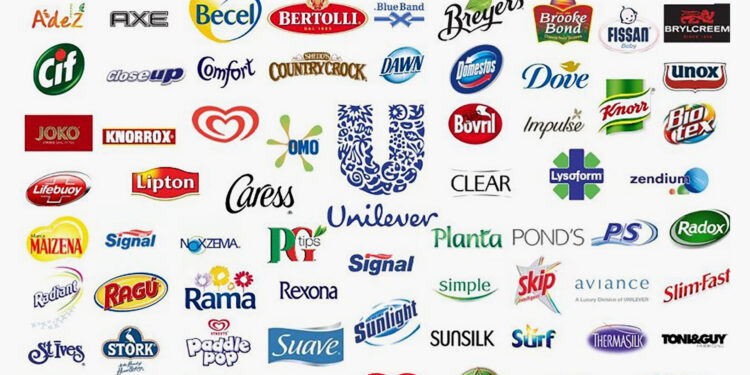10/1/2025–|Last updated: 10/1/202510:14 PM (Mecca time)
The British multinational company Unilever, which includes a large number of brands in the food, candy, beverages, cleaning materials and other sectors, such as Rexona, Sunsilk, Knorr, Lipton, and Lux, faces major challenges in the Indonesian market.
The British company is under pressure from the popular boycott of signs supporting Israel, in support of the Gaza Strip, which has been facing continuous genocide by the Israeli occupation army for about 15 months.
Figures reported by the Turkish Daily Sabah newspaper, in a report, indicate that Unilever’s market share in Indonesia will decline to 34.9% in the third quarter of 2024, compared to 38.5% in the previous year.
The data also showed an 18.2% decline in the company’s quarterly core sales, which reflects the impact of these challenges.
Boycott effect
The boycott launched by Indonesian civil society organizations in solidarity with Gaza and in rejection of companies that support Israel, encouraged by applications such as the “No Thanks” application, was a major factor in the decline in Unilever’s sales.
A review of the No Thanks app, which promotes local products such as Indomie noodles, indicated that it has more than 7 million users globally.
A report by the Turkish Daily Sabah newspaper stated that the boycotts led to a decline in sales of Unilever products such as “Renso” laundry detergent and “Pond’s” moisturizer by 20.8% and 13.3%, respectively, in the home care and food sectors.
In addition to boycotts, Unilever faces strong competition from local brands such as Wings Group and Mayura Anda, which offer products at lower prices. For example, a 400 milliliter bottle of Novo liquid soap is sold for 20% less than Unilever’s Lifebuoy product. “.
Unilever responded
Unilever’s president in Indonesia, Benjay Yap, acknowledged that the decline in market share was due to “consumer discontent,” and noted that the company was working to improve pricing, enhance the presence of its products in stores, and increase the effectiveness of online sales.
He stressed that the company is fully aware of the steps required to adapt to the rapidly changing market.
Support for local tags
Euro Monitor International data indicates that the home care market in Indonesia has grown by 11.5% to reach $3.4 billion, while the canned food market is expected to grow by 11.7% to reach $21.8 billion.
This growth represents a great opportunity for local and foreign brands that took advantage of Unilever’s decline to expand their market share, especially through intensive promotions on electronic platforms.
Extensive damage to the brand
The boycotts continued to impact Unilever’s reputation in Muslim-majority markets.
Riska Rahman, a 31-year-old mother, commented on her decision to boycott Unilever products by saying: “We stopped using everything immediately.” This feeling reflects the emotional and political impact of these boycotts, which goes beyond financial performance to reach the relationship between the brand and the consumer.
In light of these challenges, DBS Bank downgraded Unilever’s business in Indonesia from “fully evaluated” to “waitable.”
This assessment reflects declining expectations about the company’s ability to regain its market leadership position amid the entrenchment of the boycott.
The head of the Inter-Parliamentary Cooperation Committee and MP in the Indonesian Parliament, Mardani Ali Sera, said at the end of last year that work was being done in Parliament to approve a law to boycott Israeli products or those belonging to companies that support Israel or are present in it.
Ali Sira said that he has begun collecting signatures to support the presentation of a first draft of this law, so that it will be one of the first laws approved by Parliament in its new session that began last month.



